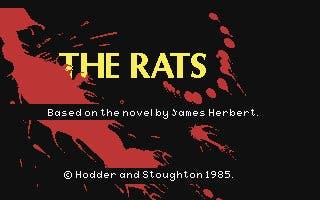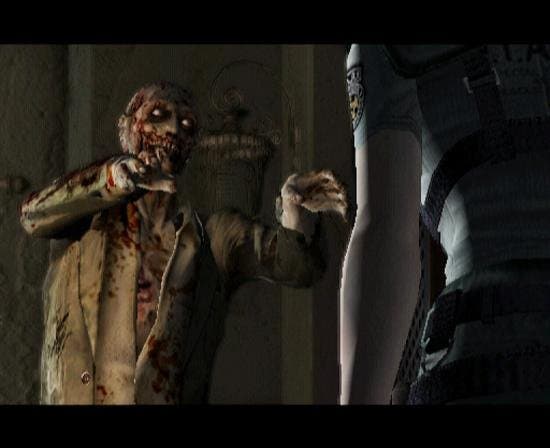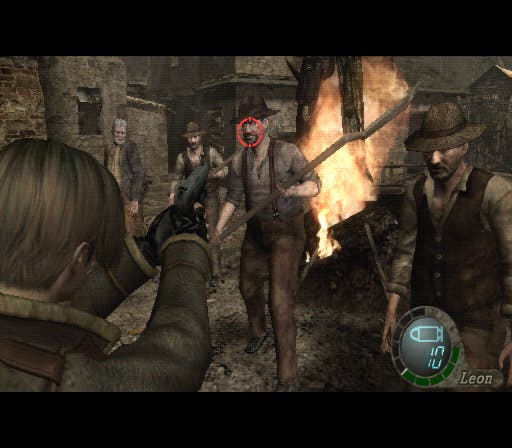Beginner's Guide: Survival Horror
Fear and loathing.
But instead of sedate turn-based adventuring, these encounters took place in real time. Players had to live with the unsettling knowledge that the razor-teethed, scaly tailed beasts would be coming for them at any moment.
"The fact that you were often working against an undisclosed timer was there to develop the anxiety," says Andy Halliday, the co-designer of the ZX Spectrum game.
But The Rats' efforts to scare didn't catch on and the same was true of the smattering of horror games that followed in the late eighties. Titles such as 1987's Japanese action-RPG War of the Dead, with its creepy atmosphere, and 1989's Project Firestart (a remarkably prescient sci-fi horror that nailed most of the ideas which would become commonplace in later horror games), came and went almost unnoticed.
After that decade of false starts came Frédérick Raynal's Alone in the Dark. Released in 1992, Alone in the Dark challenged players to help its vulnerable hero escape a mansion filled with unspeakable horrors.

Aware that the 3D visuals of the time couldn't deliver the frights, Raynal played with players' expectations to instil a sense of fear, using tricks such as collapsing floors to make players worry about even walking around the mansion.
Alone in the Dark established the template but it took the b-movie zombie scares of 1996's Resident Evil to finally establish horror as a genre in its own right. While it was inspired by Capcom's 1989 horror-themed role-playing game Sweet Home, Resident Evil didn't stray far from Raynal's approach. But its execution, superior visuals and embrace of zombie movie clichés took horror games into the mainstream.
Soon 'survival horror' games, as Capcom's marketing people pitched Resident Evil, were everywhere. And with many of them originating in Japan it didn't take long before the psychological terror created by Japanese horror movies seeped into the genre, with Konami's fog-shrouded Silent Hill leading the way.
But as the 21st century got going the excitement about horror games was on the wane. Players were growing tired of the cumbersome controls and restrictions that had come to define the genre. In short, their expectations of how games should play changed.

"Players today expect fluidity and responsiveness," says Steve Papoutsis, the executive producer of Dead Space 2.
"Some of the older horror games really relied on their controls to infuse more tension and therefore felt clunky and restrictive. I think today's gamer wants to have familiar controls that respond in the way they expect. They don't want to feel like they are fighting the controls."
Capcom's response was 2004's Resident Evil 4, which took the series in a more action-orientated direction. The game placed a greater emphasis on fast reflexes and trigger-happy gunplay than the fight or flight encounters of its predecessors.
Resident Evil 4 marked a turning point not just for the Capcom's series, but for horror games as a whole. It cleaved the genre into two camps: those which embraced a more action-orientated approach and those which preferred to focus on the emotional side of horror.
State of Play

Which brings us to now. Action-orientated horror has staged a successful coup and is the focus for major league publishers. Today games such as the thrill-a-minute rollercoaster ride that is Dead Space 2 and the panicked shootouts of Left 4 Dead dominate. These titles liberate players from sadistic developers who spent years torturing them with cumbersome controls, lopsided camera angles and distant save points.
Much of it comes down to money. "The costs of making a video game are so high, stuff like Dead Space and Resident Evil has to reach beyond the horror niche," says Barlow. "It's too risky for them not to."
But while action is now more prominent it doesn't mean the horror element has been lost, says Papoutsis.
"I think the term survival horror is still valid for a game like Dead Space 2," he argues. "Issac is trying to survive a horrific situation, so it makes sense for us. Survival in horror games is critical, it should be the driving force."
